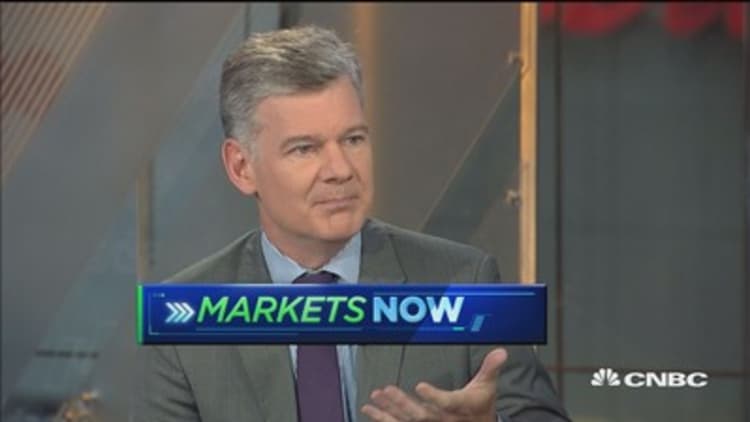
The Federal Reserve, as expected, raised interest rates for the second time this year, and that will affect your bond holdings.
Though the quarter-point increase to the Fed's benchmark rate will not drastically change your returns, a prolonged campaign of rate hikes may be a short-term drag on your fixed-income investments, as rising rates mean lower bond prices.
"The principal price of your bond will go down when interest rates rise, but that has no impact unless you plan on selling your bond and not holding it to maturity," said Dana Anspach, a certified financial planner and founder of Sensible Money in Scottsdale, Arizona.
Financial advisors recommend that bond investors keep these three things in mind before they make any changes to their portfolios:
Review your risk tolerance
A low-rate world has pushed many investors to reach for more yield by holding low-quality, high-yield bonds, said Matthew Boersen, a CFP with Straight Path Wealth Management in Jenison, Michigan.
"It's really easy to chase performance, and with the market's recent returns, plus the low interest rates on bonds, people are becoming overly risky, similar to the late 1990s," Boersen said.
Investors who want to hedge the risk of rising interest rates should use a bond ladder, Boersen said. Here's how a bond ladder works: You buy a portfolio of bonds at staggering maturities over several months and years. As the bonds mature, you reinvest the proceeds into debt instruments that best fit your income needs.
The ladder can provide some protection against rising interest rates. If rates increase, you can purchase higher-yield bonds with the income from the debt instruments already in your ladder.
More from Your Money Your Future:
'Closet indexing' can hurt investors, expert says
Would-be snowbirds are coming home to roost as retirees age in place
Married couples have 81 ways to claim Social Security. Here's how to maximize your benefits
Stay diversified
If you like your portfolio's risk level, you should keep it. The important thing is to maintain a diversified portfolio, because holding different kinds of stocks and bonds will usually perform better with less volatility over time than one concentrated in a few investments.
"We are careful with diversification so that no one bond represents more than five percent of the total portfolio," said Jeffrey Sturgis, a CFP with Brightstone Advisors in Fishers, Indiana.
Many investors use bond funds to create a diversified portfolio. Check the duration of your bond fund to make sure you are comfortable with how it will perform in a rising rate environment.
Duration is the measure of interest rate sensitivity, expressed in years. For example, the Vanguard Total Bond Market Index, the largest U.S. bond fund by assets, has an average duration of six years. That means that, if rates were to rise by 1 percentage point, this fund could lose as much as 6 percent.
"Coming off of a 30-year bond rally, many investors have never experienced a rising rate environment, let alone know how that affects their portfolio," said Benjamin Muchler, a CFP and managing director of Boston Research & Management in Manchester-by-the-Sea, Massachusetts.
The biggest mistake people make is to eliminate exposure, thinking it is the end of the world. In fact, bonds will likely be your friend in the 'end of the world' scenario.Kashif Ahmeda certified financial planner and founder of American Private Wealth
Stick to your plan
Ideally, you have considered how rising rates will change your portfolio before any Fed action.
The most important thing, financial advisors said, is to have a comprehensive long-term strategy, execute it and don't panic about short-term market movements.
"Ignore the headlines. Bonds serve a very important function as part of your asset allocation," said Kashif Ahmed, a CFP and founder of American Private Wealth in Burlington, Massachusetts. "The biggest mistake people make is to eliminate exposure, thinking it is the end of the world. In fact, bonds will likely be your friend in the 'end of the world' scenario."






